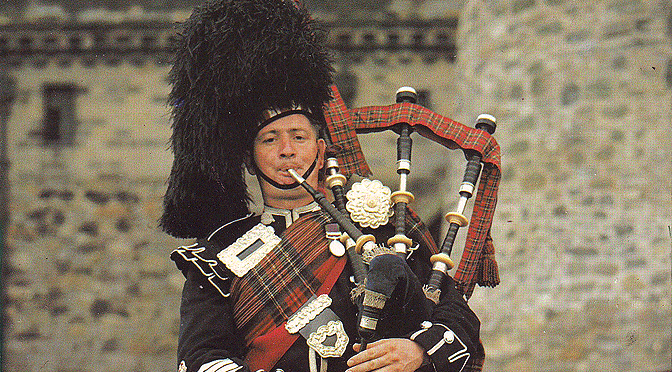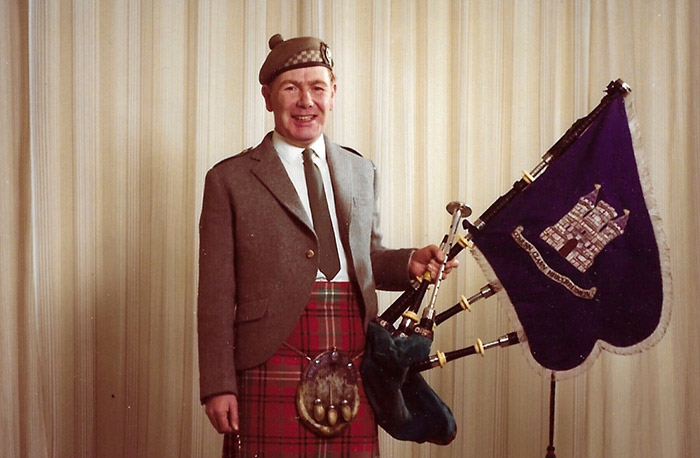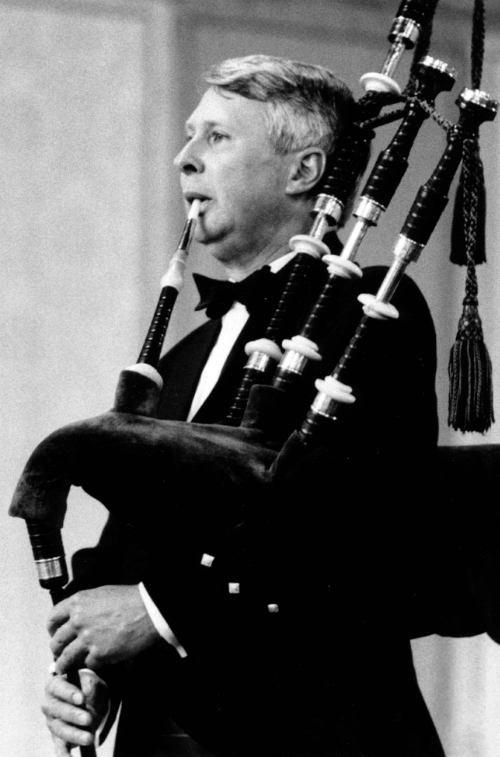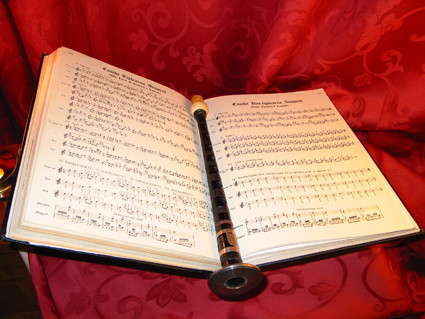Once more underlining the critical importance of reports of piping competitions, a sadly dying art, we have this from the Oban Times of November 1967. We presume it is by their then Piping Correspondent John MacFadyen. Look out for the names of George Lumsden who passed away last week, and Malcolm McRae who tonight delivers the latest in the Piobaireachd Society’s popular ‘Talk Piobaireachd’ lectures….

The third annual piping competitions of the Eagle Pipers’ Society were held on Saturday in the Royal Arch Halls, Queen Street, Edinburgh. The organisers had every reason to be pleased – this was one of their most successful competitions ever with many notable pipers competing. The competitions also attracted very large audiences.
It was a successful day for Pipe Major Angus MacDonald, Scots Guards [pictured top], who was a clear winner in the Open March, the Open Strathspey & Reel and also the Open Jig.
In the Piobaireachd Class 1 , confined to those who have won the Highland Society of London Gold Medal, there were only eight eligible competitors present. First prize went to a well-known piper from Locheynort, South Uist, Pipe Major Donald Morrison, Aberdeen City Police Pipe Band. His tune, the End of the Great Bridge, was played with excellent timing and execution.

Second was John MacDougall, Arbroath, playing the Lament for MacSwan of Roaig in a pleasing musical style on a good pipe, though no doubt his timing of the variations cost him a point or two in the opinion of the judges. John was the 1966 winner of the Class 1 Piobaireachd.
Third was Willie MacDonald, Benbecula, playing My King Has Landed in Moidart, a fine interpretation of a good tune, except for a slight drag at the end of the first variation. This has been a successful year for Willie who has won the Gold Medal at Oban and the Clasp at Inverness.
Fourth prize went to Willie M. MacDonald, Inverness, with the Big Spree. A good pipe, but had he settled in his tune in the opening of the ground instead of at the end, he might have been higher in the prize list.
The judges were Captain DR MacLennan, Mr Hugh MacRae and Dr Donald Ross from Lochgilphead who is home on holiday from Liberia. When a medical student, Dr Ross won the Gold Medal at Oban in 1937.
Result in the Jig: 1 P/M Angus MacDonald 2 John Percival 3 Angus MacLellan 4 Willie MacDonald, Benbecula. The Open March was judged by Dr Colin Caird, DR MacLennan and P/M Wille MacRostie. Playing was of a very high standard. The winner was P/M Angus MacDonald with Leaving Lunga, 2 Hector MacFadyen, 3 John MacDougall, 4 Lawrence MacIver, Glasgow.
The Open Strathspey & Reel, with again 27 competitors in the field, was judged by P/M George Stoddart, Ronald Ackroyd and Hugh MacRae. P/M Angus MacDonald was again the winner. Second was Ian McLellan, Glasgow, third George Lumsden, and fourth John MacDougall.
In the Piobaireachd Class 2, judged by Dr Kenneth MacKay, Captain Ian C Cameron and P/M Ronald MacCallum, the competition was very keen with 15 pipers taking part. The winner, who is eligible for the Class 1 competition next year, was James McIntosh, Dundee. His winning tune was Black Donald’s March, which, according to the adjudicators, was very well played. They added that about ten performances were of a high standard in this competition.
Second was Malcolm McRae, Australia (right). He gave a sound interpretation of Lament for Patrick Og MacCrimmon. Third was Angus J MacLellan, Glasgow Police, playing Donald Duaghal MacKay. Fourth was P/M George Lumsden, Edinburgh Police, who played Lament for MacSwan of Roaig.

The smooth running of the competition was due in large measure to P/M John MacLellan, Secretary and Treasurer of the Eagle Pipers, and Captain Ian C Cameron, President. The organisation was so well timed that 27 pipers had played in four competitions between 9.30am and 7pm with an hour for lunch.



















